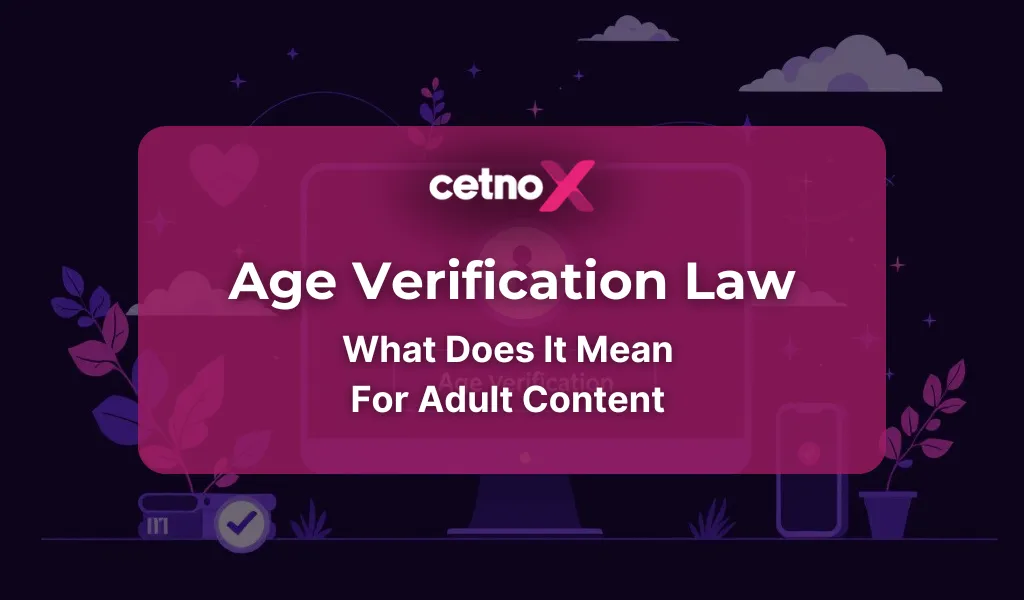The rise of age verification laws in the U.S. is reshaping the adult content industry. With states introducing legislation to enforce stricter access controls, adult websites must adapt or face severe consequences. What does this mean for the online landscape and your digital freedom? Let’s dive into the details.
Why Are States Pushing for Age Verification Laws?
The surge in age verification laws stems from concerns over minors’ access to adult content. Louisiana pioneered these laws in 2022, mandating that websites hosting explicit content verify users’ ages using government-issued IDs or state-approved methods.
States argue these laws protect children from harmful material, but critics claim the measures risk undermining privacy and digital freedom. While some states have successfully passed laws, others face challenges in balancing child protection with adults’ rights to access legal content online.
Legislation like the Texas age verification law has drawn attention due to its stringent requirements. Websites must implement robust verification methods, often at the cost of user experience and privacy concerns.
What Are the Requirements for Age Verification?
States with age verification laws impose strict mandates on adult websites, requiring them to verify users’ ages through:
- Government-issued IDs: Digital or physical ID checks.
- Verification services: Third-party tools to ensure compliance.
Failure to comply with age verification comes with hefty penalties, including fines and lawsuits. For instance, sites like Pornhub opted to block access in affected states rather than risk non-compliance, a move critics see as harmful to adults’ access to legal content.
The laws in the United States often classify platforms hosting over 33% of material harmful to minors as requiring age verification processes. This affects not only adult content sites but also platforms with mixed user-generated content, complicating compliance.
What Critics Say About Age Verification Laws
Critics argue that age verification laws raise significant concerns:
- Privacy risks: Collecting extensive personal data for age verification opens users to identity theft and surveillance.
- Freedom of expression: Critics, including the Free Speech Coalition, argue these laws restrict access to legal content and violate the First Amendment.
- Technical hurdles: Implementing age verification measures can be costly and complex, pushing some platforms to avoid affected states altogether.
The broad definitions of “material harmful to minors” exacerbate these challenges, potentially impacting LGBTQ+ content and user-generated platforms. States like Indiana have even proposed criminal liabilities for non-compliant websites, intensifying the stakes.
How Do Legal Challenges Impact Enforcement?
Many age verification laws face legal battles. Lawsuits often cite:
- First Amendment violations: Critics argue these laws limit adults’ access to lawful content.
- Jurisdictional overreach: Applying state laws to the internet’s global nature is a contentious issue.
For example, the Texas age verification law was temporarily blocked before being reinstated by the Court of Appeals, reflecting the ongoing struggle between state enforcement and digital rights.
Legal challenges also highlight the difficulty in enforcing these laws consistently. Without digital ID systems, many states lack the infrastructure to implement effective age verification methods, forcing websites into uncertain legal territory.
What Does the Future Hold for Age Verification Laws?
As more US states adopt or consider these measures, the digital landscape for adult content is changing rapidly. While age verification mandates aim to protect minors, they also raise questions about privacy, freedom, and the practicality of enforcement.
A balanced approach is essential to address these concerns. Solutions like privacy-centric verification services and enhanced digital literacy among families could provide alternatives to invasive regulations.
For website owners, staying on the right side of the law requires understanding and adapting to these changes. Whether through implementing age verification checks or exploring innovative compliance methods, navigating this evolving space will be critical for sustaining a safe and accessible internet.

